17 Risky Caribbean Islands For Tourists + 3 You’re Safer Avoiding
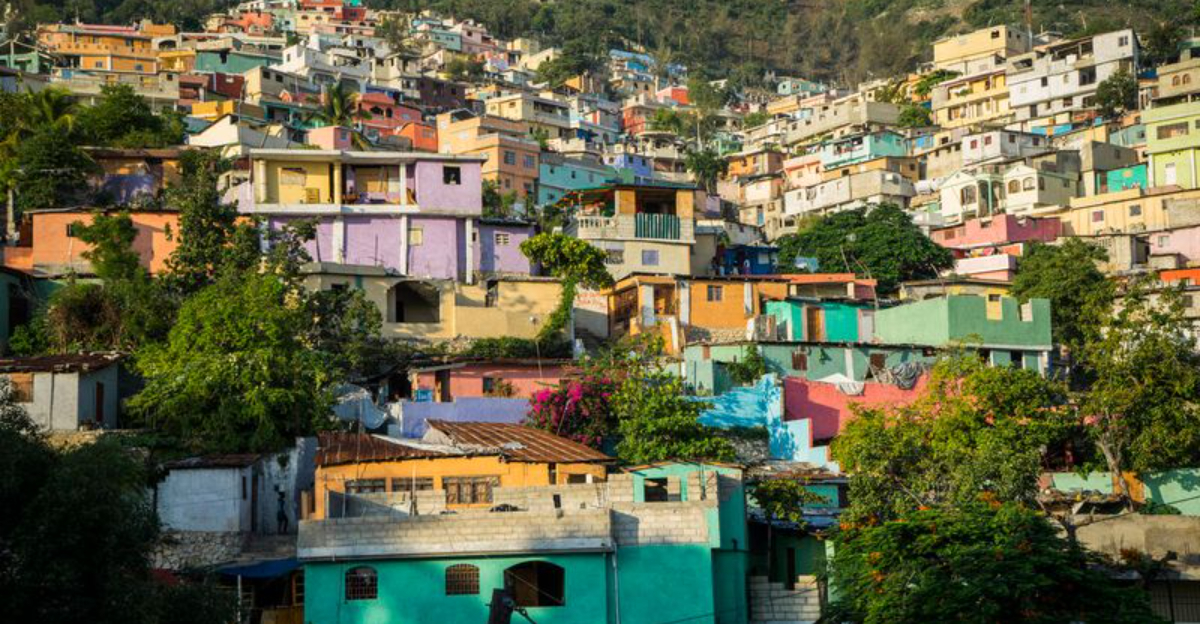
A Caribbean escape conjures images of turquoise waters and hammock naps—but safety matters, even in paradise. While the vast majority of visits are trouble-free, some islands come with risks travelers shouldn’t ignore. I’ve looked into the destinations where pickpocketing, scams, and even violent crime have raised red flags for tourists.
But don’t worry—it’s not all bad news. I’ve also pinpointed the islands where you can relax with peace of mind, plus three that, in my honest opinion, might not be worth the risk right now.
So before you book that beachfront bungalow, let’s make sure you know exactly what you’re walking into.
1. Trinidad & Tobago Crime Concerns
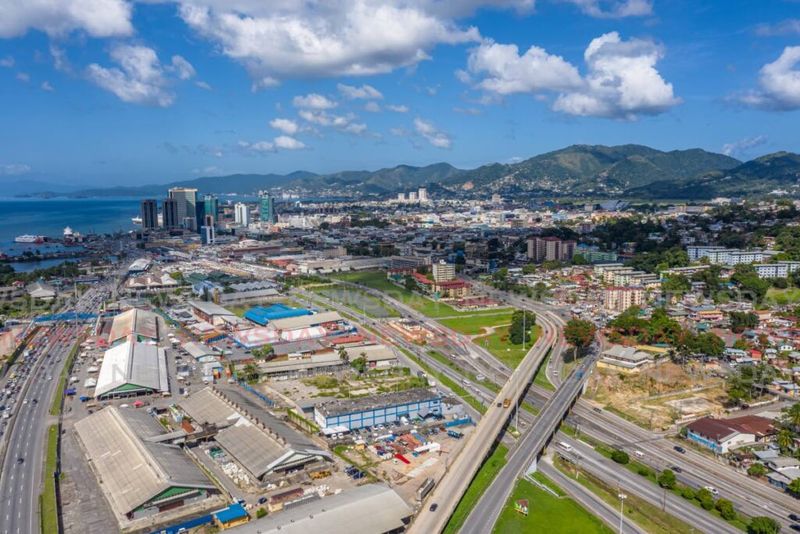
Gang activity plagues certain areas of this dual-island nation, especially around Port of Spain. Tourists often become targets for robbery, particularly after dark or when flashing expensive items.
The beautiful beaches attract visitors, but criminals know tourists carry valuables. I recommend avoiding isolated areas and using only registered taxis, especially at night.
Women travelers should exercise additional caution, as harassment has been reported. Despite these issues, many visitors enjoy Trinidad’s famous Carnival safely by sticking to tourist zones and practicing common sense.
2. Santo Domingo Tourist Scams
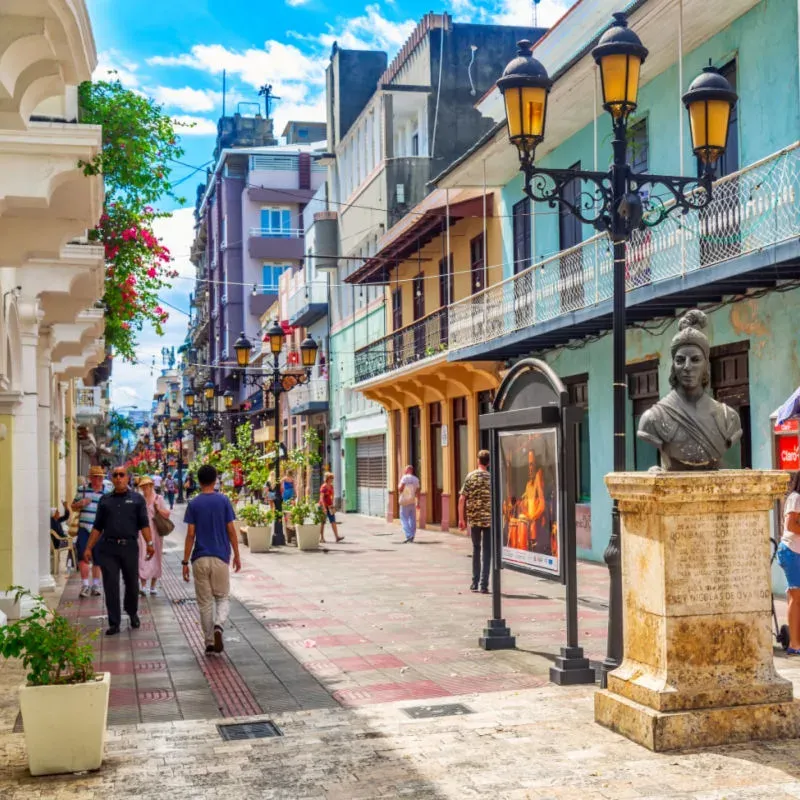
Money exchange tricks top the list of problems in the Dominican Republic’s capital. Cashiers might count bills quickly or hand back incorrect change, hoping you won’t notice.
Fake tour guides approach visitors near popular attractions like the Colonial Zone, offering special access or exclusive tours at inflated prices. Many tourists fall victim to transportation scams where drivers claim meters are broken, then charge outrageous fares.
Credit card skimming happens at smaller restaurants and shops. I always recommend paying with small bills, confirming prices before services, and using only ATMs inside banks for better protection.
3. Nassau Pickpocket Hotspot
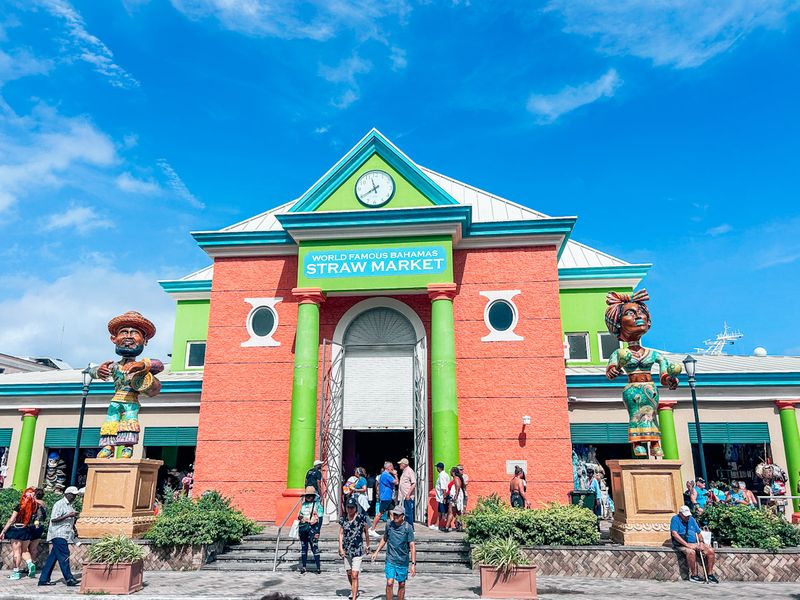
Cruise ships dump thousands of visitors daily into Nassau’s crowded markets and beaches. This creates perfect opportunities for skilled pickpockets working in teams to target distracted tourists.
The straw market and Bay Street shopping district see the highest concentration of theft reports. Visitors often don’t realize their wallets or phones are missing until hours later.
Bag-snatching from beach chairs happens while swimmers enjoy the water. I always keep valuables in front pockets or money belts when exploring Nassau. Consider leaving passports in hotel safes and carrying only necessary cash for daily activities.
4. Kingston Local Unrest
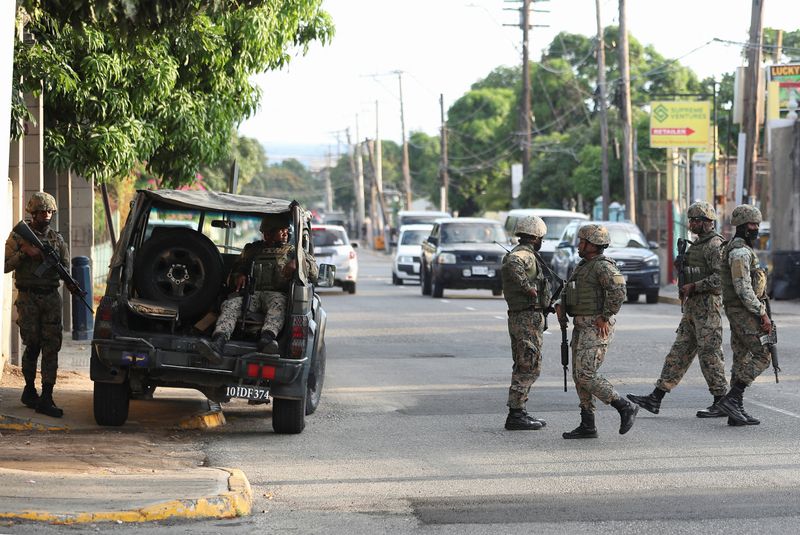
Jamaica’s capital experiences periodic demonstrations that can quickly escalate. Political tensions sometimes spill into tourist areas, catching visitors by surprise.
Certain neighborhoods like Trench Town and Tivoli Gardens struggle with gang violence. Though these areas hold cultural significance, they remain dangerous for tourists without local guides.
Armed robberies occasionally target visitors who venture away from secure zones. I recommend staying in well-established tourist areas like New Kingston and hiring reputable drivers rather than wandering independently. Check local news for protests before heading out for sightseeing.
5. Saint Martin Theft Reports
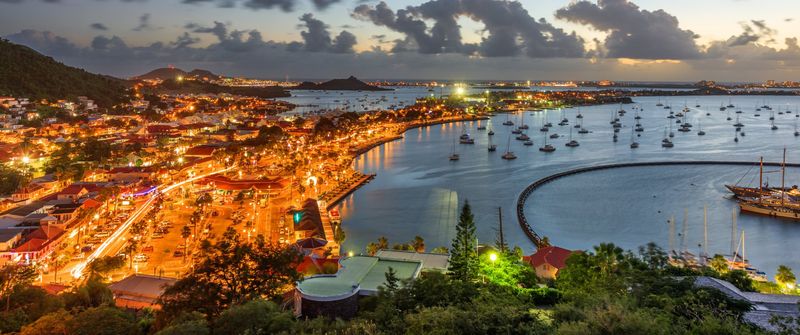
This half-French, half-Dutch island struggles with car break-ins targeting rental vehicles. Thieves recognize tourist cars by their rental company stickers and target them in beach parking lots.
Vacation home burglaries spike during high season. Criminals know which properties are vacation rentals and monitor them for patterns when guests are away.
Smartphone snatching happens along the popular boardwalk areas, especially in Philipsburg and Marigot. I advise never leaving valuables visible in cars, avoiding flashy jewelry, and using room safes consistently. The island remains mostly safe, but property crime affects enough visitors to warrant caution.
6. Port-au-Prince Travel Warnings (Avoid This One)
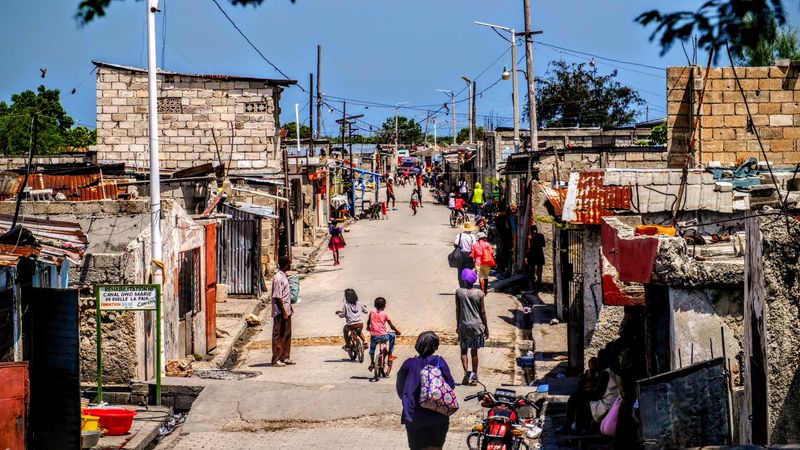
Haiti’s capital faces extreme security challenges that make it unsuitable for typical tourism. Gang control extends through many neighborhoods, with kidnappings targeting foreigners for ransom.
Armed robberies occur in broad daylight, even in areas once considered safe. The political situation remains highly unstable, with frequent protests that block transportation routes.
Medical facilities cannot handle emergencies adequately, and police response is unreliable at best. Most governments issue their strongest travel warnings against visiting Port-au-Prince. I strongly recommend choosing alternative Caribbean destinations until conditions improve significantly.
7. San Juan Night Risk
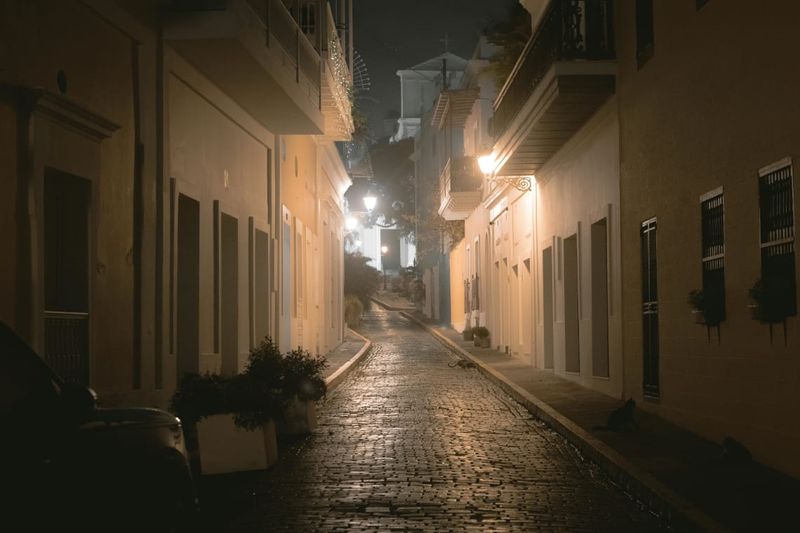
Puerto Rico’s capital transforms after dark, especially in La Perla and parts of Santurce where muggings increase significantly. Tourists walking back to cruise ships or hotels become easy targets.
Drug activity in certain nightlife areas creates unpredictable situations. Criminals sometimes pose as helpful locals before leading visitors to isolated spots.
Drink spiking has been reported in some bars catering to tourists. I recommend using official taxis rather than walking at night, staying in well-lit areas with groups, and watching drinks being prepared. The historic Old San Juan area maintains better security than outlying neighborhoods.
8. Montego Bay Tourist Targeting
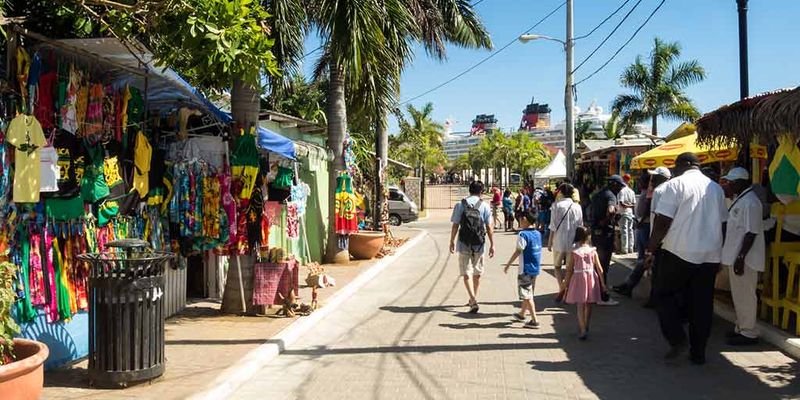
Resort areas in Jamaica’s popular destination experience coordinated scams targeting newcomers. Hustlers approach with aggressive sales tactics for everything from hair braiding to water sports.
Counterfeit goods sellers crowd the Hip Strip, sometimes becoming confrontational if tourists try to bargain too hard. Some vendors work with pickpockets who strike during distractions.
Transportation overcharging happens frequently, with unofficial taxis charging triple the standard rates. I suggest arranging activities through your hotel, clearly agreeing on prices before services, and politely but firmly declining unwanted offers. All-inclusive resorts offer the most protection from these issues.
9. Castries Pushy Vendors
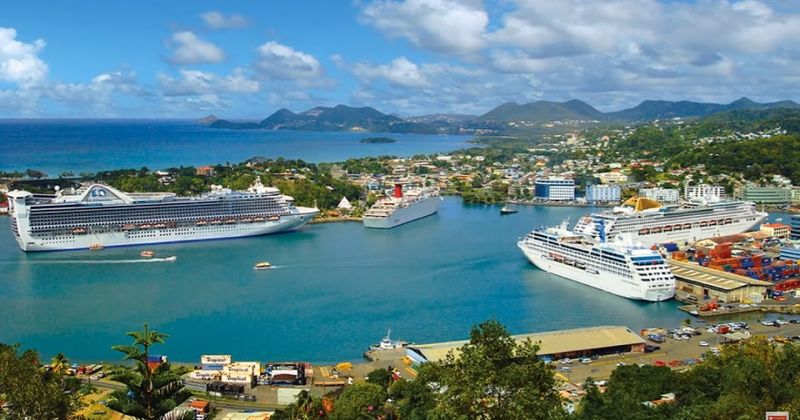
St. Lucia’s capital port welcomes cruise ships daily, creating a feeding frenzy of aggressive sellers. Vendors sometimes follow tourists for blocks, making shopping uncomfortable.
Taxi drivers compete intensely for business, occasionally misleading tourists about distances or attraction closing times to secure fares. Market sellers may switch items during packaging or shortchange distracted buyers.
Local tour operators sometimes promise exclusive experiences that don’t match reality. I recommend researching standard prices beforehand, booking with established companies, and learning polite but firm refusal phrases. The harassment rarely becomes dangerous but can certainly diminish enjoyment of this otherwise lovely island.
10. Ocho Rios Beach Hustlers
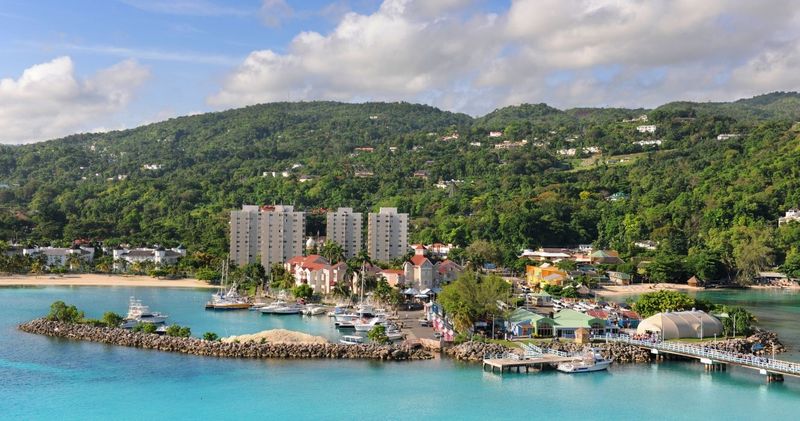
Jamaica’s popular cruise port attracts persistent beach vendors selling everything imaginable. They approach repeatedly despite polite refusals, particularly targeting first-time visitors who haven’t developed firm rejection skills.
Unlicensed jet ski operators offer rides at seemingly good prices but often demand more money once you’re out on the water. Hair braiders sometimes begin working without clear agreement on price, then demand excessive payment.
Drug sellers approach tourists surprisingly openly near major beaches. I recommend using resort beaches with security rather than public ones, establishing clear boundaries with vendors, and avoiding isolated areas where pressure tactics intensify.
11. Oranjestad Petty Crimes
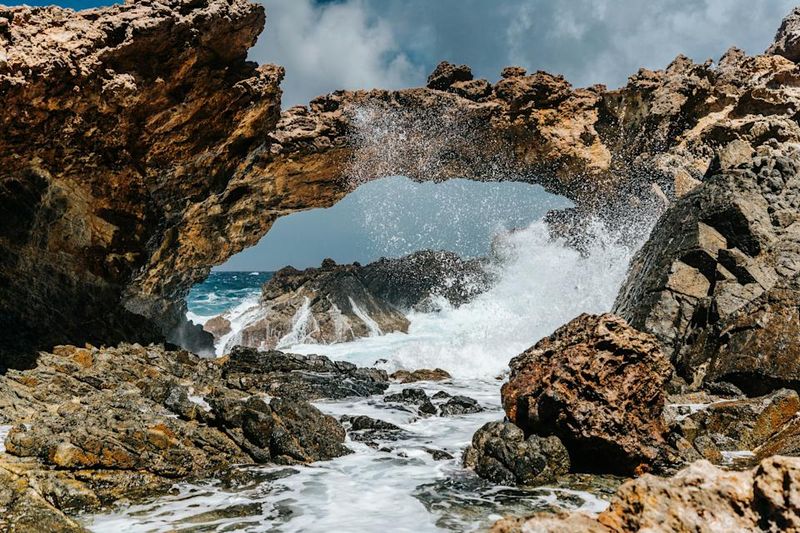
Aruba’s capital experiences increasing theft from rental cars and beach belongings. Thieves target vehicles with rental stickers while tourists explore attractions like Natural Bridge or Arikok National Park.
Pickpocketing occurs in the busy shopping districts, especially when cruise ships are in port. Unattended bags disappear quickly from beaches when owners swim.
Counterfeit money sometimes returns as change from smaller vendors. Though violent crime remains rare, these property crimes affect enough visitors to warrant caution. I always advise using hotel safes, carrying minimal valuables, and avoiding leaving anything visible in parked cars.
12. Roseau Market Distractions
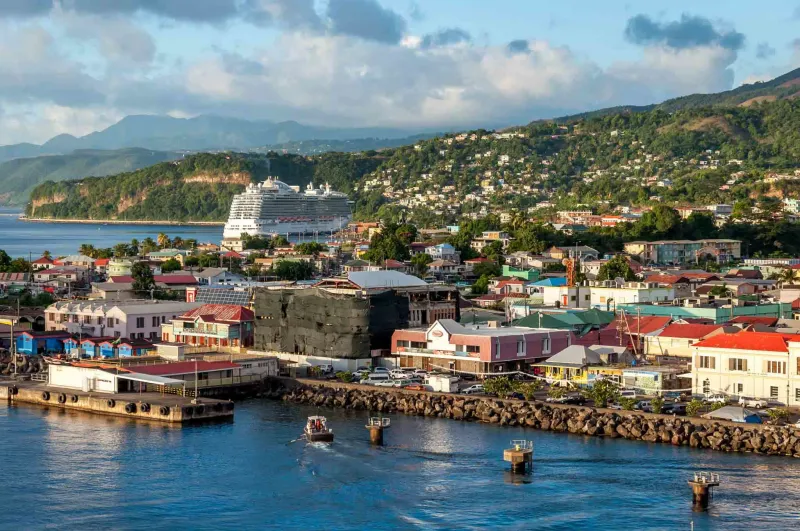
Dominica’s capital has a reputation for clever distraction techniques targeting tourists. Common scams include someone spilling something on your clothing, then another person offering to help clean up while accomplices pick pockets.
Market vendors sometimes use quick-change tricks when handling unfamiliar Caribbean currencies. Cruise passengers face particular targeting due to their limited time ashore and predictable routes.
Fake tour guides approach offering special access to natural attractions at “discount prices.” I recommend keeping valuables secure in money belts, photographing taxi license information before trips, and arranging tours through established businesses rather than street solicitors.
13. Bridgetown Taxi Scams
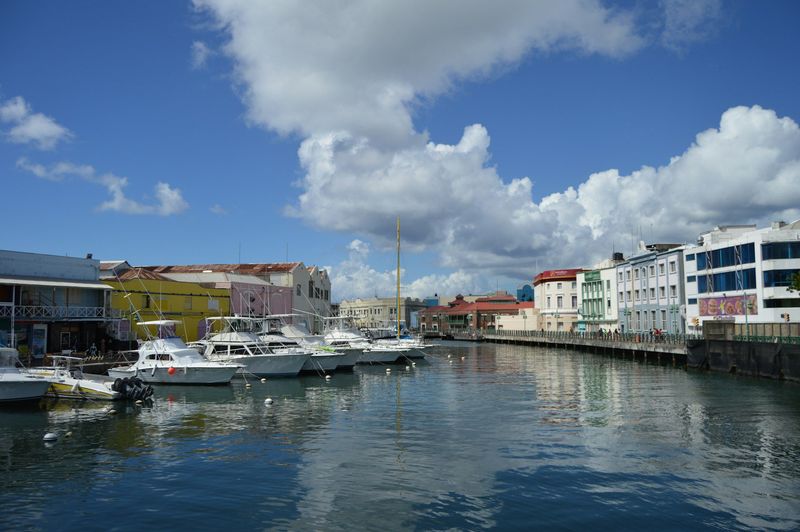
Barbados’ capital struggles with transportation deception targeting tourists. Unlicensed taxis lack meters and charge arbitrary fares, often claiming “special rates” for visitors.
Some drivers take unnecessarily long routes to increase fares or stop at commission-paying shops along the way. Hotel transportation arranged through unofficial sources sometimes never arrives, leaving tourists stranded after payment.
Cruise passengers face particular targeting with false claims about port distance and ship departure times. I recommend using only officially registered ZR vans or licensed taxis with proper identification, confirming fares before entering vehicles, and arranging return transportation in advance.
14. Basseterre Safety Fluctuations
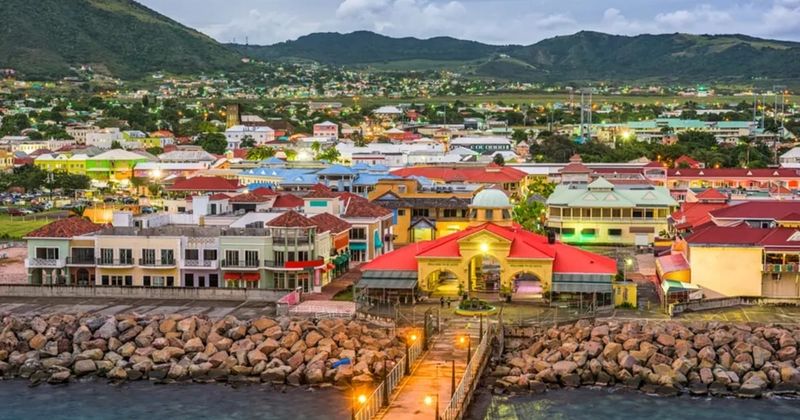
St. Kitts’ main town experiences seasonal crime increases during low tourism periods when economic pressures rise. Robbery attempts increase in less-patrolled areas just outside the main tourist zone.
Beach vendors sometimes become aggressive when tourists decline services. Jewelry and electronics thefts from hotel rooms have been reported when items are left unsecured.
ATM skimming devices occasionally appear at machines in less-monitored locations. While still relatively safe compared to other Caribbean destinations, Basseterre requires awareness of surroundings. I suggest staying in well-traveled areas, using hotel safes consistently, and avoiding displays of wealth.
15. Philipsburg Overpriced Tours
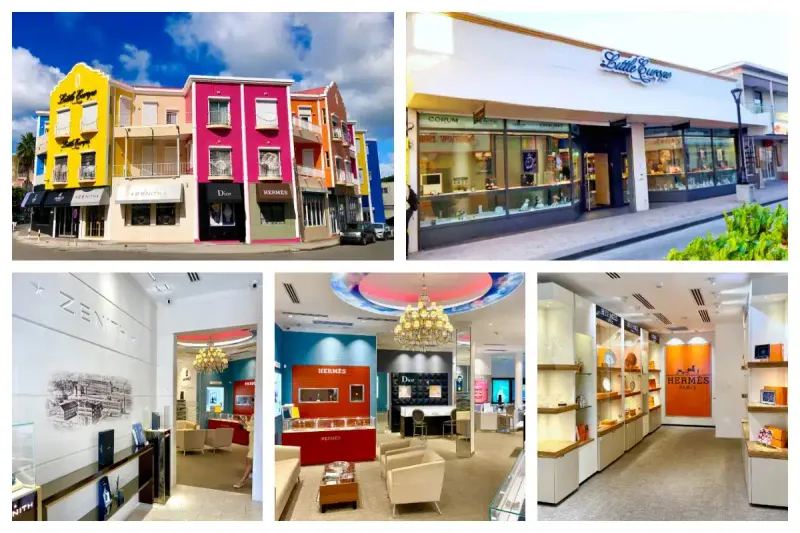
St. Maarten’s main town struggles with deceptive excursion pricing that targets cruise passengers. Operators advertise low initial prices, then add numerous unexpected fees once tours begin.
Some beach clubs promote “free” chairs and umbrellas but require minimum food and drink purchases at inflated prices. Jewelry stores sometimes misrepresent gemstone quality or sell watches with questionable authenticity.
Water sports equipment rentals might come with hidden damage charges applied after return. I recommend researching typical prices before arrival, getting all costs in writing before booking, and reading recent reviews. Despite these issues, Philipsburg remains relatively safe for physical security.
16. Willemstad Fake Guides
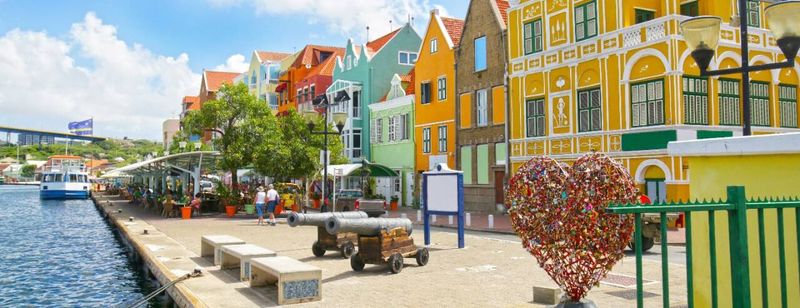
Curaçao’s colorful capital attracts imposters posing as authorized tour guides. They approach tourists near cruise terminals offering “special access” to attractions at seemingly good prices.
These unauthorized guides often provide inaccurate information and rush visitors through sites to maximize profits. Some lead tourists to commission-paying shops rather than promised attractions.
Water taxi operators sometimes quote one price then demand more upon reaching destinations. I recommend verifying credentials before hiring guides, booking through established companies, and researching standard rates. The historic district remains generally safe, but these tourism scams leave visitors with disappointing experiences and lighter wallets.
17. Road Town Cruise Chaos
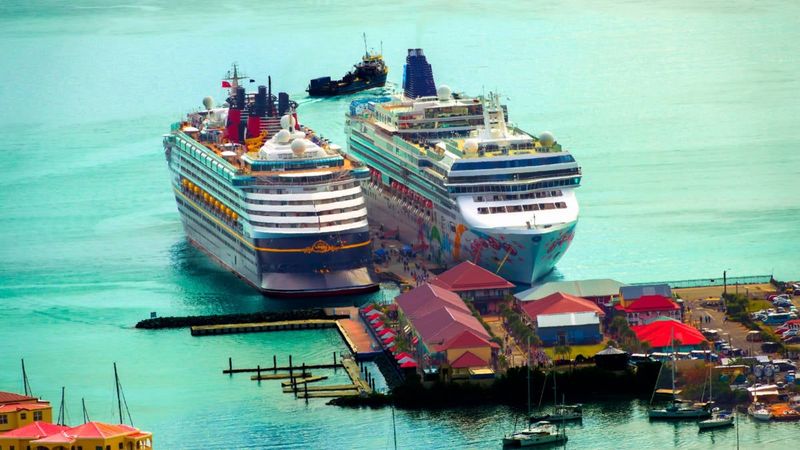
The British Virgin Islands’ main port becomes overwhelmingly crowded when multiple ships dock simultaneously. This congestion creates perfect conditions for minor thefts and scams targeting disoriented visitors.
Taxi drivers sometimes group strangers together without permission, charging each full fare. Souvenir vendors occasionally swap quality items during packaging after purchases are made.
Excursion tickets sold on streets often misrepresent included amenities or departure times. While violent crime remains rare, these frustrating experiences affect visitor satisfaction. I suggest booking activities through ships or reputable websites, photographing any purchased items before wrapping, and arranging transportation before arrival.
18. Cap-Haïtien Safety Issues (Avoid This One)
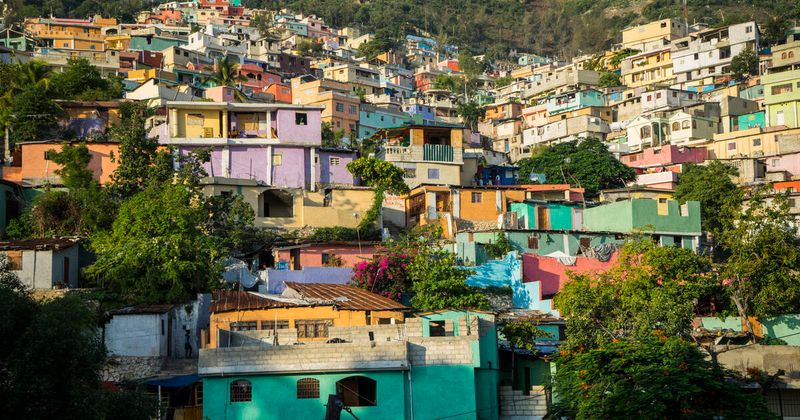
Haiti’s northern city faces severe infrastructure challenges and security concerns making tourism inadvisable. Power outages occur regularly, leaving areas completely dark at night when crime risks peak.
Political instability creates unpredictable roadblocks and demonstrations that can trap visitors. Medical facilities lack basic supplies and equipment for emergencies.
While the historic Citadelle Laferrière attracts adventure travelers, reaching it requires traversing areas with significant safety concerns. Most travel insurance policies specifically exclude coverage in Haiti due to extreme risks. I strongly recommend choosing other Caribbean destinations until conditions improve substantially.
19. Caracas Spillover Risk (Avoid This One)
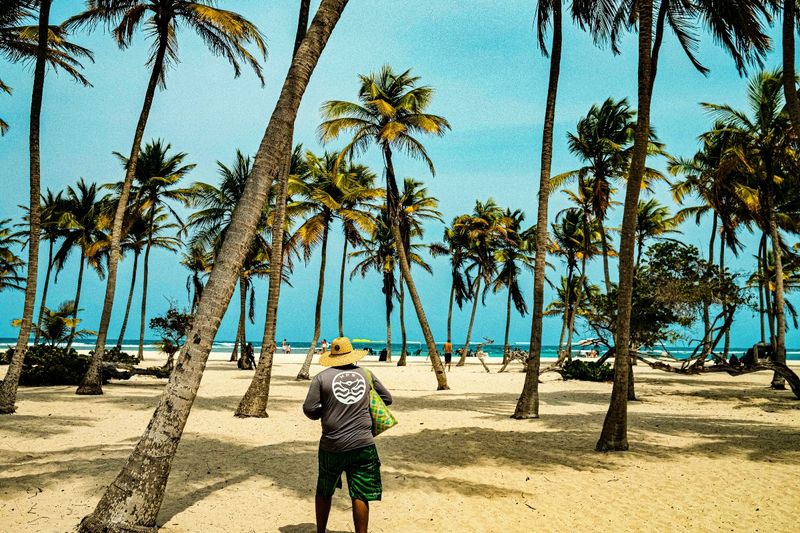
Venezuela’s ongoing crisis affects nearby islands, particularly with maritime safety concerns. Boats traveling too near Venezuelan waters face piracy risks and potential detention by authorities.
Refugee movements create unstable conditions in border regions. Criminal organizations operating from mainland Venezuela sometimes extend activities to neighboring islands.
Though technically not a Caribbean island itself, Caracas represents a serious risk zone that travelers should avoid entirely. The humanitarian situation continues deteriorating with extreme shortages of food, medicine, and basic services. I strongly advise choosing other Caribbean destinations and avoiding maritime routes near Venezuelan territorial waters.
20. Fort-de-France Crowded Quarters
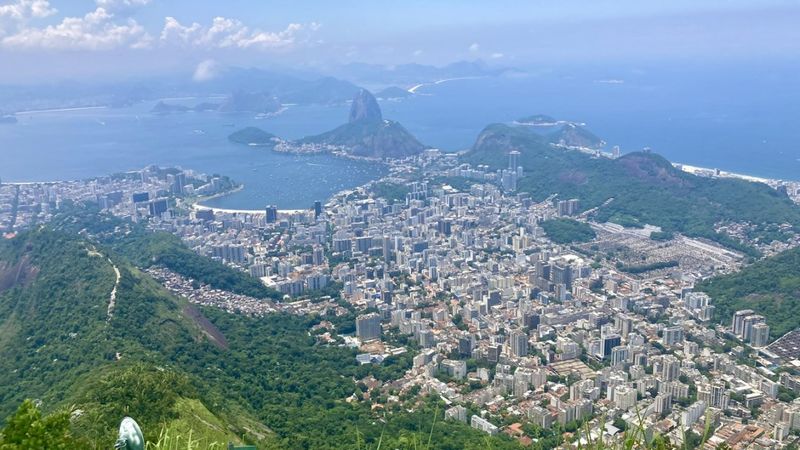
Martinique’s capital experiences congestion-related safety issues when cruise ships arrive. Narrow streets become packed with tourists, creating prime conditions for pickpocketing and bag-snatching.
Scooter thieves occasionally grab purses or phones from distracted visitors before speeding away. Market areas see the highest concentration of minor theft reports, particularly when customers handle cash.
Though violent crime remains uncommon, the crowded conditions create opportunity for property crimes. I recommend wearing cross-body bags with zippers facing inward, keeping valuables in front pockets, and maintaining awareness in busy areas. The French island’s police presence helps deter more serious incidents.
